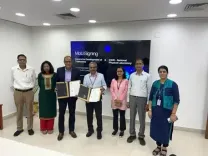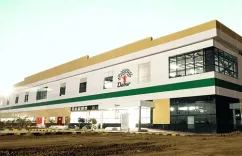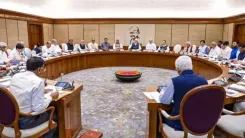Is the Cabinet Transforming ITIs with a New Skilling Scheme?

Synopsis
The Union Cabinet's recent approval of a transformative scheme for ITIs marks a significant step forward in vocational education. With a substantial financial backing, this initiative aims to upgrade training facilities and align the skill set of youth with industry demands, creating a robust workforce for the future.
Key Takeaways
- Significant Financial Backing: Rs 60,000 crore allocated for ITI upgrades.
- Focus on Industry Alignment: Training programs will match industry needs.
- Youth Empowerment: 20 lakh youth to be skilled over five years.
- Infrastructure Improvement: Upgrades to training facilities across multiple locations.
- Long-term Industry Partnership: Establishing a sustained connection with industry stakeholders.
New Delhi, May 7 (NationPress) The Union Cabinet, led by Prime Minister Narendra Modi, has given the green light to a national initiative aimed at upgrading Industrial Training Institutes (ITIs) and establishing five National Centres of Excellence for Skilling as part of a centrally-sponsored program, marking a significant advancement in the realm of vocational education in India.
This initiative was unveiled in the context of the Budget 2024-25 and Budget 2025-26, featuring a financial commitment of Rs 60,000 crore. This amount includes a Central contribution of Rs 30,000 crore, a state contribution of Rs 20,000 crore, and an industry contribution of Rs 10,000 crore. Notably, a co-financing arrangement will see the Asian Development Bank and the World Bank each providing 50% of the Central share.
The scheme's primary focus will be the enhancement of 1,000 Government ITIs through a hub-and-spoke model, aligning revised courses with industry needs and augmenting the capacity of five National Skill Training Institutes (NSTIs). This will involve the establishment of five National Centres of Excellence for Skilling within these institutes, as outlined in an official statement.
The initiative aspires to transform existing ITIs into government-owned, industry-managed aspirational institutes for skill development, in conjunction with state governments and industry stakeholders. Over the next five years, it aims to equip 20 lakh youth with skills that meet the human capital demands of various industries. The scheme is designed to align the local workforce supply with industry demand, thus aiding sectors, including MSMEs, in securing employment-ready candidates.
Historically, financial support under various schemes has fallen short of addressing the comprehensive upgrade requirements of ITIs, particularly concerning the increasing investment needs for infrastructure maintenance, capacity expansion, and the introduction of capital-intensive, contemporary trades.
To address this issue, the proposed scheme incorporates a need-based investment strategy, allowing for flexible fund allocation tailored to the specific infrastructure, capacity, and trade-related needs of each institution.
For the first time, this initiative is set to foster a robust industry connection in the planning and management of ITI upgrades on a sustained basis. The scheme will employ an industry-led Special Purpose Vehicle (SPV) model for an outcome-oriented implementation strategy, differentiating it from past attempts to enhance the ITI ecosystem.
Infrastructure upgrades aimed at improving Training of Trainers (ToT) facilities will be carried out in five NSTIs located in Bhubaneswar, Chennai, Hyderabad, Kanpur, and Ludhiana. Furthermore, training will be provided to 50,000 trainers, both pre-service and in-service.
By tackling longstanding challenges related to infrastructure, course relevance, employability, and the public view of vocational training, this initiative strives to elevate ITIs to a central role in addressing the demand for skilled labor, aligning with the nation's aspirations to become a global hub for manufacturing and innovation.
This will facilitate the creation of a talent pipeline that meets industry demands, effectively addressing skill shortages in rapidly growing sectors such as electronics, automotive, and renewable energy. Ultimately, this proposed scheme supports Prime Minister Narendra Modi's vision of a 'Viksit Bharat', where skilling plays a crucial role in fulfilling both current and future industry requirements.









